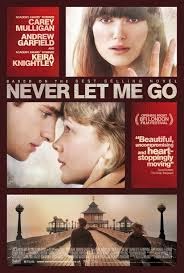Perhaps I liked the book less and less because the narrator never became any smarter or more intuitive. I expected him to at least figure out some answers for himself, but he seemed incompetent without the guidance of Ishmael. At this point, the questioning read more like an essay and I felt Ishmael was just throwing a bunch of information at the reader. I also feel like this Socratic dialogue was a way for Quinn to throw his "great" knowledge at the reader, while still somehow writing a fiction novel. I found myself most intrigued when the narrator was describing interactions away from Ishmael, as that created some character development.
This leads me to my next concern. Because the narrator only seemed to ask "who, what, where, when, why" questions, his personality was not shown at all through the text. This, along with the fact that he never revealed his name, left me unable to connect with the narrator and think of him as just another one of Ishmael's subjects. Without knowing what is going on in the narrator's mind, I have very little faith that he could continue Ishmael's teachings. He also doesn't seem to truly understand what Ishmael tells him, because he needs to ask about everything. At one point in the story, Ishmael tells him to think for himself, but that is quickly forgotten when he starts to question again.
 Peter Kreeft, a professor of philosophy at Boston College, writes using the Socratic dialogue to fictitiously question famous figures. This is a fun way for him to share his ideas in a more intellectual and enjoyable fashion than just writing them in an essay. I think this is just what Quinn does in Ishmael, with the only difference being that Socrates is probably much smarter than our questioner.
Peter Kreeft, a professor of philosophy at Boston College, writes using the Socratic dialogue to fictitiously question famous figures. This is a fun way for him to share his ideas in a more intellectual and enjoyable fashion than just writing them in an essay. I think this is just what Quinn does in Ishmael, with the only difference being that Socrates is probably much smarter than our questioner.I seem pretty critical of Quinn's method, but I was able to get through the book without losing too much focus. The Socratic Dialogue method was effective at explicitly defining Quinn's ideas, and I was able to keep up with the complex ideas. Really, I didn't like the style because the questioner lacks any independence whatsoever, and without guidance he could not make a difference in the world, just like the human race.
